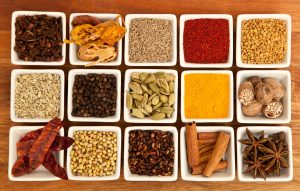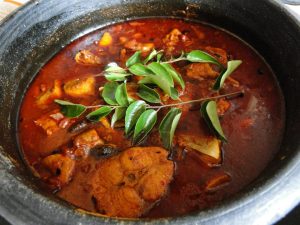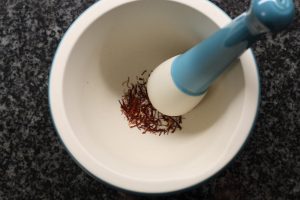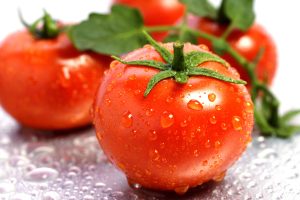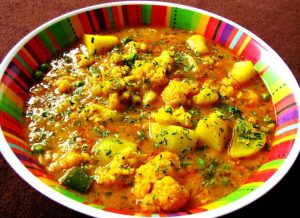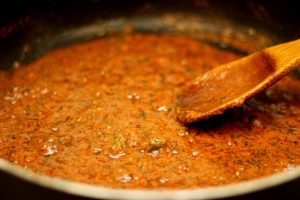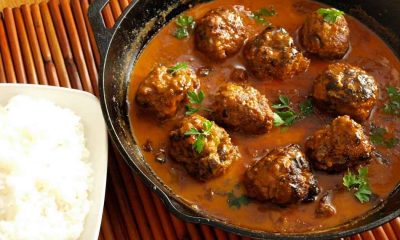Food Blogs
13 Tips To Help You Make The Perfect Curry
The complexity in the layers of flavours of Indian curry is a symphony of taste. But to nail that curry- we all have our curry disaster stories. Here are all the tips you’ll ever need to make that lip smacking curry.
1. Know your spices
Spices are the main ingredient of your curry and you need to treat each in the right way to release the flavours. Whole spices such as mustard, cumin seeds, cloves and cinnamon need to be tempered in hot oil until they pop and sizzle. If you are using dry spice powders, mix them together with a little water and allow to sit for a few minutes while your onion is frying. This slight re-hydration and extra moisture can help prevent your spices from burning. Dry powders are very prone to burning so you will really need to add water or tomatoes while you are frying your spice mixture. Don’t be afraid of cooking your spices well – you cannot do it too much, but it will be very obvious if you don’t do it enough. If you feel like your spice mix is looking dry and starting to burn, you can add more oil, or add some water or chopped tomatoes. If you are adding water just keep cooking and stirring until the water evaporates and the oil starts to separate.
2. Invest in Asafoetida
A pinch of asafoetida or hing can elevate the flavours of your curry. Let it sizzle with your whole spices in hot oil for a few seconds before adding the rest of your ingredients. With asafoetida, keep chanting the mantra: less is more.
3. Health. That’s the priority.
You don’t have to add cream. For a dairy-free creamy curry, try soaking cashew nuts or skinned almonds in hot water for an hour, then blending with water to create a smooth paste. Cook in hot oil, along with your whole spices until the oil separates from the sauce (this will take about 20 minutes). Then add in your ground spices and tomatoes if you’re using them.
4. Curry leaves
Curry leaves are the ingredient that attribute to that typical taste in Indian cooking. Add curry leaves and insist on fresh ones. Don’t bother with the dried curry leaves- they taste of absolutely nothing. Add a few leaves to hot oil when you are frying your spices to release heaps of aroma.
5. Let onions do their work
Onions can make or break the dish. If your curry demands onions, try and dice it finely. Always give them them time to cook throughly. This will create the base of your curry and help combine the favours in the spices. The degree to which you fry your onion plays a very significant role. The golden rule is to fry it until it’s golden. Adding a little salt while you are frying your onions will help prevent burning.
6. Saffron trick
If you’re adding saffron, make it go that extra mile by placing it a bowl and microwaving on high for 15 seconds. When you add it to your dish, it will release heaps more flavour than if you didn’t.
7. Alliums- take a pass
Don’t always reach for the onions and garlic. Not all curries need them. Most curries are simply made with mustard seeds popped in hot oil, lots of ginger, green chillies, boiled potatoes, a pinch of turmeric, lemon juice and salt. Less is more.
8. Tomatoes- stock, stock and stock some more
Keep a stash of tinned chopped tomatoes and a tube of tomato puree in your cupboard at all times. A tin of chopped tomatoes with a squeeze of tomato puree is the perfect base for any curry. Just remember to add a pinch of sugar to neutralise any acidity.
9. Bicarbonate of soda rule
A pinch of bicarbonate of soda will help beans and lentils cook quickly and evenly whether you’re using a pressure cooker or simply boiling them to add to a curry later.
10. Be patient
Patience is a virtue. Let tomato sauce to cool slightly before quickly whisking in any cream, coconut milk or yoghurt. This will stop a creamy curry from splitting. Spices need to be cooked. This would be the most important tip of all I think and was the primary cause for my pathetic curries in the early days. You need to fry your spices in the onion and garlic/ginger mixture for a good five to ten minutes. For a perfect curry, you need to allow time.
11. Seasoning
Always season your curry with a balance of lemon juice, salt and sugar. If you’ve over salted or sugared, lemon juice should help neutralise it.
12. Consistency is the key
The importance of the right constancy of curry cannot be overstated. If you are using water or cocunt milk for consistency, add little at a time until you get to the right level of thickness. It is important that you cook this on a moderate to low heat. Cooking your curry in a high heat will not help you make a thicker curry but just ruin the rest of your ingredients and encourage separation of the liquid from the solids. To thicken a sauce quickly, add one mashed potato and stir for a rich, velvety finish.
13. Clever garnishes
Always add ground garam masala and other ground spices at the end of cooking. If you add them too early, the spices will cook out too much and taste quite dull. A sprinkling of garam masala at the end of cooking is the way it should be used as it will add a delicious, aromatic whack of flavour you’re after.

